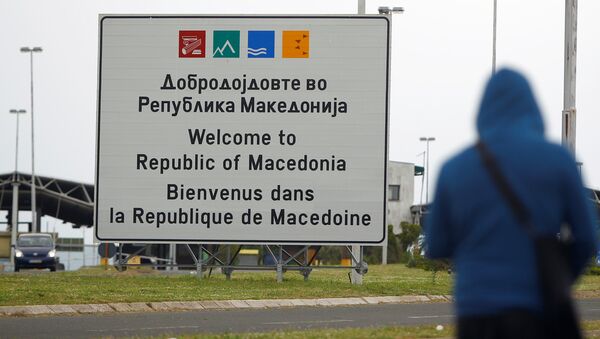"The agreement brings peace and stability in the region while it defeats nationalism and extremism in both countries. New job opportunities will appear and it will be simpler for companies to transport their goods towards Central Europe and vice versa," Kouloglou said.
According to the lawmaker, the agreement "is the best one could get" and was welcomed by almost all political parties in the European Parliament.
"As for Greece, ending a dispute that existed for over 25 years shows that the country is dedicated to being part of the solution and not of the problem anymore. We want friendship and cooperation in our northern borders, not enemies and closed borders," Kouloglou stressed.
READ MORE: Several Injured in Rallies Against Macedonia Deal in Greece — Reports
Meanwhile, a member of the European Parliament from the Greek Popular Unity party Nikolaos Chountis said that the name deal served NATO's aim to restrain Russia in the Balkans.
"The agreement reached between Greece and Macedonia was dictated by NATO and the EU, both in terms of its accelerated nature and the main points of its content, at a time of increased regional conflicts and tensions in the southern Mediterranean. This agreement serves NATO penetration in the Western Balkans against any possible stronger presence of Russia in the area," Chountis told Sputnik.
According to the lawmaker, there is a concern whether the deal "really ensures security and equal and friendly relations between the two peoples" as it has been promoted primarily as the necessary step for Macedonia's accession to NATO and the European Union.
READ MORE: Police Detain Journalist After Calls to Shoot Gov't for Macedonia Deal — Reports
Last week, foreign ministers of Greece and Macedonia signed an agreement to rename the ex-Yugoslav country into the "Republic of North Macedonia," paving the way for Macedonia to join NATO and the European Union.



